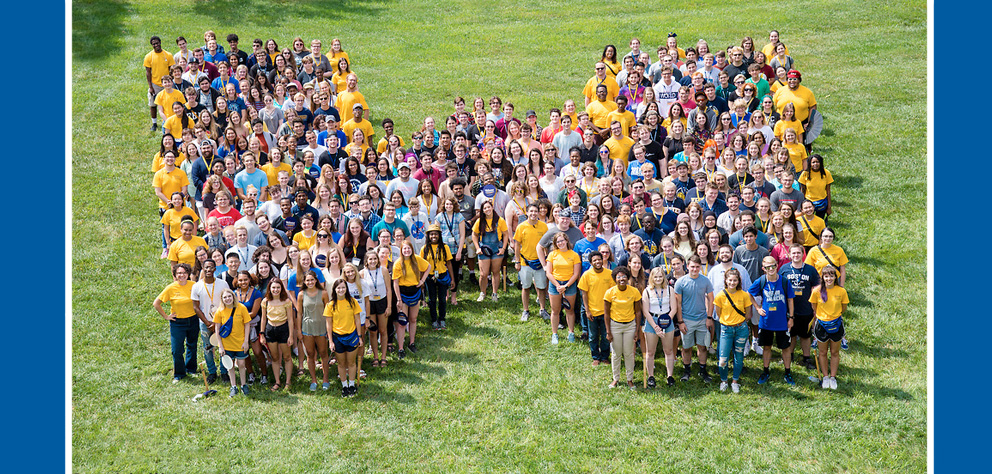Webster University Nationally Recognized as Voter Friendly Campus
March 09, 2021
 Webster University was nationally recognized as a Voter Friendly Campus for its efforts
to encourage more students to vote, it was announced today. The recognition was made
by VoterFriendlyCampus.org, a nonpartisan organization created by the Fair Elections
Center’s Campus Vote Project (CVP) and NASPA – Student Affairs Administrators in Higher
Education.
Webster University was nationally recognized as a Voter Friendly Campus for its efforts
to encourage more students to vote, it was announced today. The recognition was made
by VoterFriendlyCampus.org, a nonpartisan organization created by the Fair Elections
Center’s Campus Vote Project (CVP) and NASPA – Student Affairs Administrators in Higher
Education.
The designation was given after the organization reviewed the University’s efforts to encourage student participation in the 2020 elections and remove barriers that may have prevented students from being able to cast a ballot.
“At the start of the 2020 election cycle WebsterVOTES set a goal to earn the Voter Friendly Campus designation. We already knew that our students are highly engaged voters and we wanted to do as much as possible to engage them in the election process and reduce as many barriers as possible.” said Jennifer Stewart, director of Student Engagement.
“We feel strongly that one of the best ways students can learn Global Citizenship is through participation in the electoral process when they are able and understanding the ways that their choices affect our communities on all levels.
To accomplish the goal of raising election awareness, a group of students, faculty and staff formed the WebsterVOTES Task Force officially in 2016 after many years of standalone voter programming. This year, under the leadership of Stewart, Campus Election Engagement Project Fellow Sarah Hill and graduate student intern Meredith Bates, and along with the support of the Office of Student Engagement, the Task Force organized a team of volunteers from throughout the Webster University community to implement several projects, including:
- Creating a Voter Engagement and Registration module for Virtual New Student Orientation.
- Training Residential Assistant staff on voter registration processes for residential students.
- Executing a plan for getting ballots to students in quarantine/isolation due to the COVID-19 pandemic.
- Providing voter education materials to students.
- Informing the public of changes to polling places and distributing notary public information needed to submit mail-in ballots.
- Promoting WebsterVOTES programs through courses offered in the College of Arts and Sciences, the School of Communications and the Leigh Gerdine College of Fine Arts.
- Hosting voter information sessions and post-election discussion panels.
- Working with Dance the Vote STL to create and co-host the nationally recognized Make Good Trouble Video Contest.
- Negotiating with the St. Louis County Board of Elections to consolidate the four polling locations that previously were used for the Webster Groves campus into one unified location within walking distance of the campus, thus increasing accessibility to polling places for students.
- Working with the Campus Elections Engagement Project to provide the campus with a voter engagement fellow to coordinate and execute WebsterVOTES programming.
- Posting directional signage on election day so the community could find the nearest polling location.
Early results show that nationally, young people aged 18-29 voted at rates of between 52%-55% an increase of 7-10% over the 2016 election. Stewart said, in 2018 Webster University students voted at a 54.6% voter rate and based on the preliminary national poll numbers we expect that our voter turnout will increase as well. Because of the voter registration results, educational efforts and successful programming, Webster was one of two hundred campuses in 37 states that has been designated a “Voter Friendly Campus.”
This is not the first time Webster has been recognized for finding ways to increase voter engagement in its community. Following the 2018 Midterm Elections, Webster was recognized by the All-In Campus Challenge with the Platinum Seal for having more than half of the student body participate in the election. The University also earned several best-in-class awards for our voter numbers.
For more information about the Voter Friendly Campus program, visit www.voterfriendlycampus.org.

